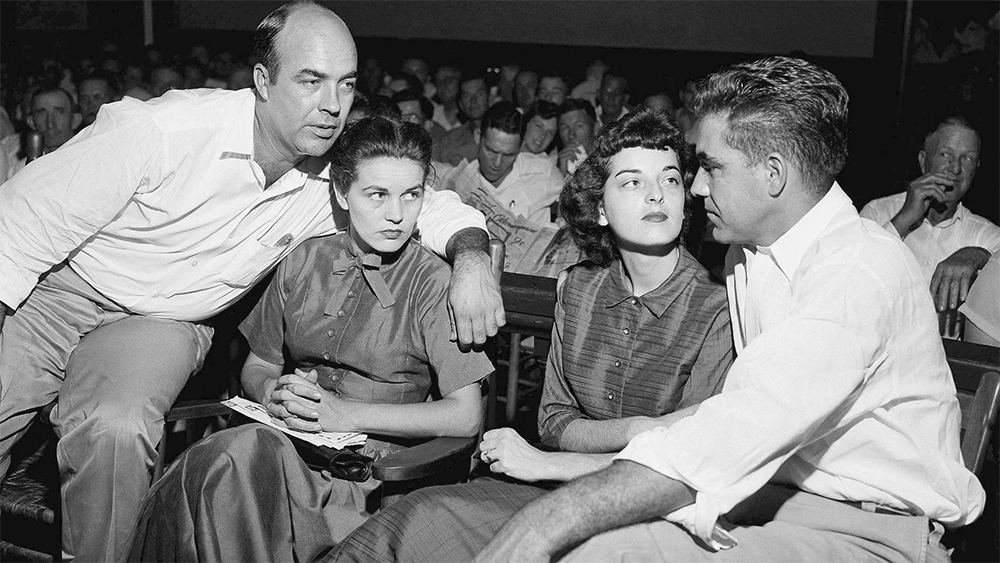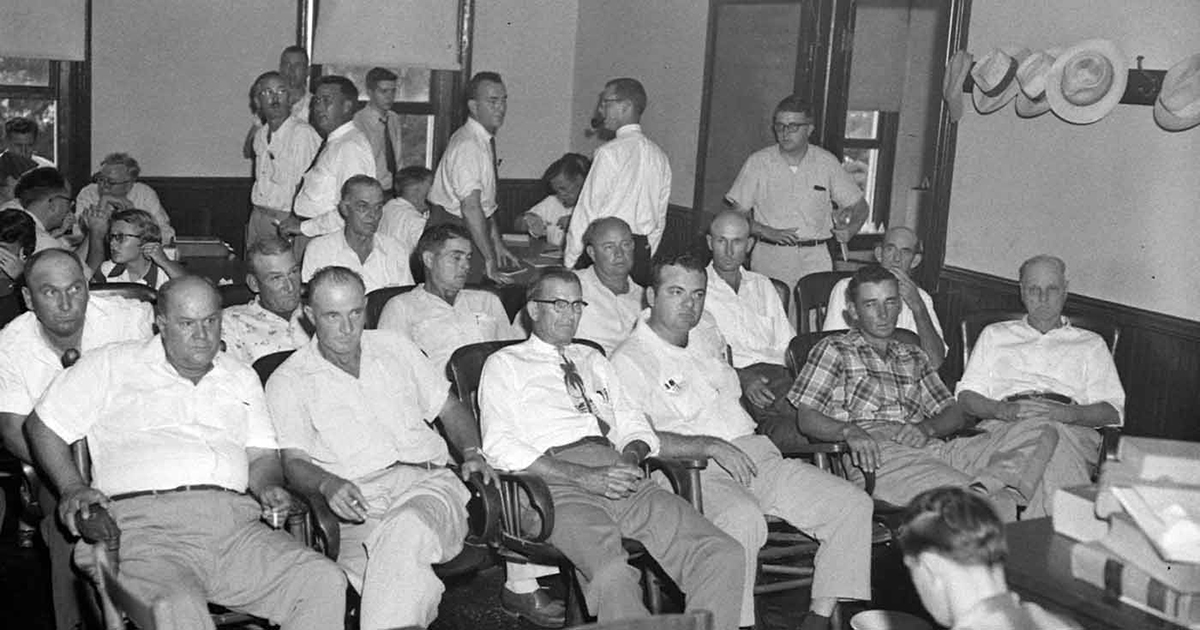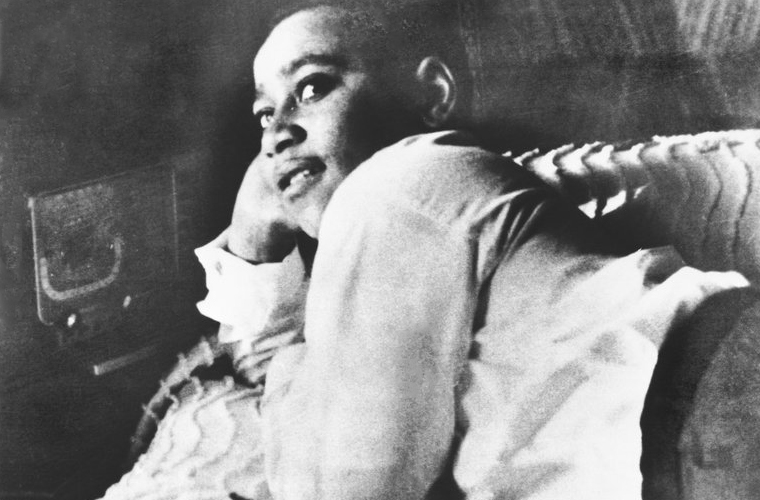Emmett Till was born on July 25, 1941, in Chicago, Illinois, to Mamie Till-Mobley and Louis Till. His parents separated when he was a child, and Till was raised primarily by his mother, who worked as a clerk for the Air Force. In the summer of 1955, Till traveled to Money, Mississippi, to visit family members. On August 24, he went to Bryant’s Grocery and Meat Market, a local store owned by Carolyn Bryant Donham and her husband, Roy Bryant. While in the store, Till allegedly whistled at Carolyn, a white woman. The incident was reported to Roy Bryant, who along with his half-brother J.W. Milam, later abducted Till from his uncle’s home.
The two men brutally beat and tortured Till before shooting him in the head and throwing his body into the Tallahatchie River. Till’s body was discovered three days later, and despite being badly disfigured, Till’s mother insisted on an open-casket funeral so that the world could see the brutality of her son’s murder.

The trial of Bryant and Milam lasted for five days, during which the defense argued that there was insufficient evidence to convict the men of Till’s murder. The all-white jury acquitted Bryant and Milam after just 67 minutes of deliberation, sparking outrage across the country. Till’s murder and the trial that followed became a turning point in the civil rights movement. The images of Till’s mutilated body galvanized the movement, and his death is often cited as a catalyst for the activism that followed.









Because blacks and women were barred from serving jury duty, Bryant and Milam were tried before an all-white, all-male jury. In an act of extraordinary bravery, Moses Wright took the stand and identified Bryant and Milam as Till’s kidnappers and killers. At the time, it was almost unheard of for blacks to openly accuse whites in court, and by doing so Wright put his own life in grave danger.
Despite the overwhelming evidence of the defendant’s guilt and widespread pleas for justice from outside Mississippi, on September 23 the panel of white male jurors acquitted Bryant and Milam of all charges. Their deliberations lasted a mere 67 minutes. Only a few months later, in January 1956, Bryant and Milam admitted to committing the crime. Protected by double jeopardy laws, they told the whole story of how they kidnapped and killed Emmett Till to Look magazine for $4,000.

In 2004, the Department of Justice reopened the investigation into Till’s murder, and in 2005, a grand jury declined to indict anyone in connection with the case. In 2017, the Department of Justice reopened the case again after Carolyn Bryant Donham admitted that she had fabricated her testimony about Till in 1955.
Till’s legacy continues to be felt today. He is remembered as a tragic victim of racism and violence, and his memory continues to inspire the fight for racial justice in America. Coming only one year after the Supreme Court‘s landmark decision in Brown v. Board of Education mandated the end of racial segregation in public schools, Till’s death provided an important catalyst for the American civil rights movement.

